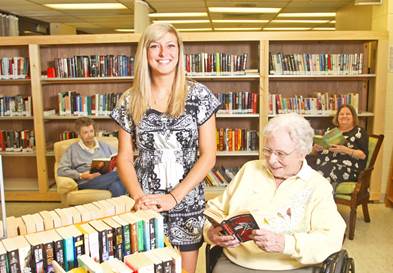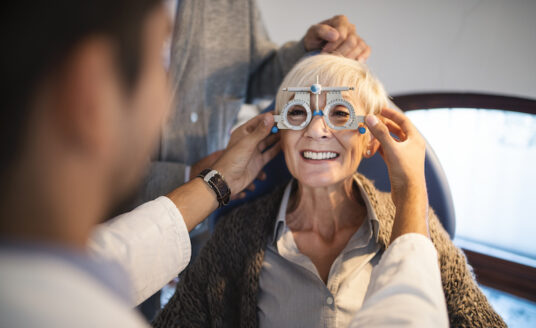 When health issues make it time to place a loved one in long-term care, it’s not just a quality-of-care decision but one of quality-of-life as well. This is, after all, going to be their “home” with friends to make and things to do. That’s where Bethesda Health Group’s volunteers come in. They help make it neighborly.
When health issues make it time to place a loved one in long-term care, it’s not just a quality-of-care decision but one of quality-of-life as well. This is, after all, going to be their “home” with friends to make and things to do. That’s where Bethesda Health Group’s volunteers come in. They help make it neighborly.
The Role of a Volunteer
In tandem with staff, volunteers enhance the social side of long-term care by encouraging inclusion and engagement. They implement card clubs and crafts groups. They bring shared-interest groups together. They assist sight and hearing impaired folks who want to participate in bingo and other games. Volunteers are often new friends with pets named Bentley or Jack or Guinness. They become familiar faces who drop by just to say hello. Volunteers make the long-term care experience home-like with familiar pursuits, such as:
- Facilitating birthday parties and special event celebrations
- Transporting residents to religious services or OT/PT therapies
- Organizing Wii tournaments, dice and board games
- Helping with manicures (At any age, girls still want to have fun)
- Accompanying wheelchair-bound residents on field trips
- Enjoying a sporting event or movie together
- Bringing the outside world in by sharing a special hobby or love of the arts
- Providing one-on-one companionship for residents who have limited family contact
- Reading to residents – be it the Bible, a newspaper or great literature
- Making music – by helping with bell and vocal choir practices and performances
- Making sure the veterans are recognized and honored
- Supporting auxiliary fundraisers that support the Bethesda Foundation, which provides humanitarian care for residents in financial need
For long-term care residents, social experts agree that social connections are as beneficial as diet and exercise are to good physical and emotional health and cognitive function. These interpersonal relationships lower cardiovascular risks and blood pressure and reduce feelings of isolation and depression, according to the University of Rochester Medical Center.
Is volunteering at a long-term care community only for older adults?
Seniors are not the only ones who have the opportunity to volunteer. Anyone interested in volunteering should inquire about getting involved. The majority of regular volunteers are over 45 years old; and a good majority are baby boomers and beyond. These volunteers are at a place in their life where family commitments and job responsibilities are not so exhausting, yet they still have a lot to give.
- They’re interested in their own communities.
- They have an interest in people in general, and the elderly in particular.
- They understand the importance of the long-term care relationship.
- They have social and professional skills to share.
- They make the time and, in many cases, have flexible schedules.
- Many volunteers are former or current caregivers.
It’s a wonderful legacy for the next generation, but volunteers’ motives are usually altruistic. Volunteering is its own reward. (Interestingly, however, the health benefits for the volunteers parallel that of residents.)
Volunteers are valuable Bethesda partners. If you are interested in volunteering at one of the Bethesda communities click here for more information.
Want to find out more?
If you’d like to stay up to date with Bethesda Health Group, sign up here to receive our blog and newsletters!
"*" indicates required fields
Related Articles
Want to find out more?
If you’d like to stay up to date with Bethesda Health Group, sign up here to receive our blog and newsletters!
"*" indicates required fields



